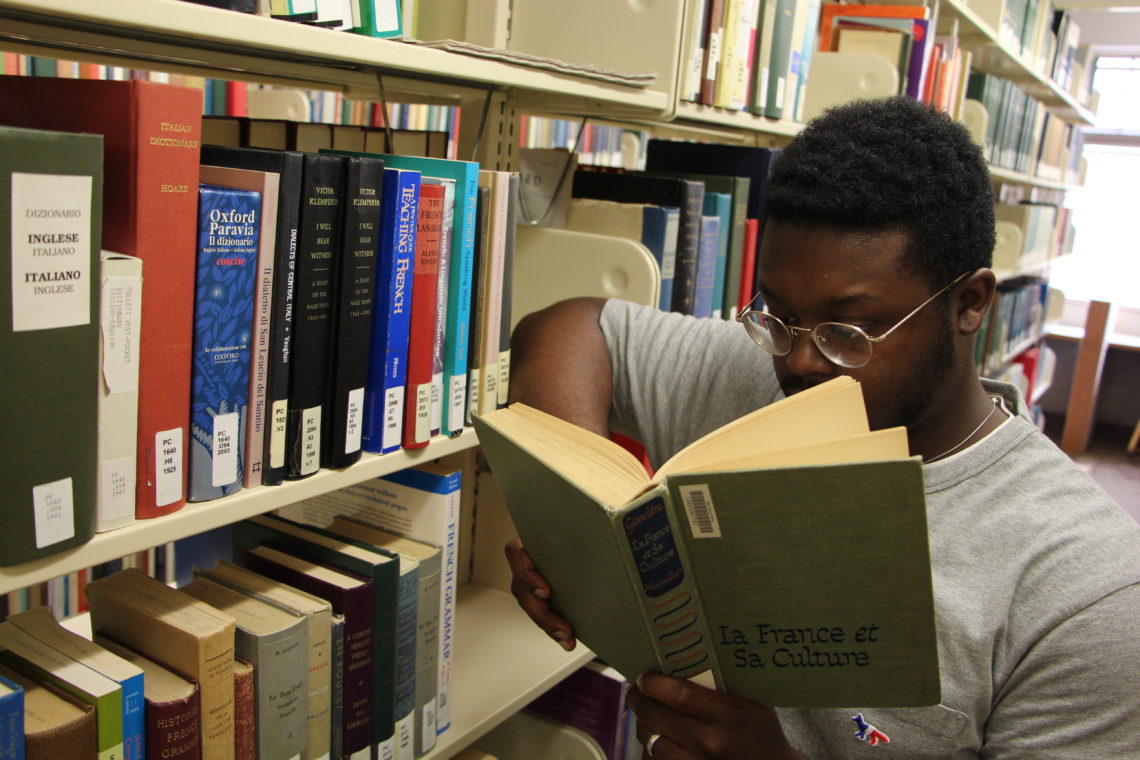
Why You Don’t Need Immersion to Become Fluent
Learning a language to fluency is truly a challenge. Quite often, I hear people suggest that in order to achieve fluency, you must go abroad and live amongst native speakers. While this can be helpful for some people given the right circumstances, it is not as universal a solution as one might think, nor is it the “shortcut” that it is sometimes claimed to be.
In the same vein, the notion that going abroad and living amongst native speakers is the key to learning a language is a double-edged sword. For language learners at the intermediate to advanced level, the idea that one must go abroad to become fluent could motivate them to do just that. On the other hand, I believe it can stop people, especially beginners, from wanting to try to learn a language at all.
Fluency Is Relative
First, let’s talk about fluency. There are various definitions and ideas out there about what fluency is. After of years of reading up on the topic, I believe that speaking a language fluently is fundamentally about making yourself understood. If you can get your point across in a variety of subjects and communicate with other people without struggling, then I would consider you fluent.
Fluent does not necessarily mean fluid, nor does it necessarily mean proficient. Fluidity comes with time, as does proficient use of the target language. With a good understanding of fluency, you are able to see why traditional language immersion may not be the key to fluency, fluidity, or even proficient use of a language. One step always leads to another – and once you have reached fluency, you will have no problem also achieving fluidity and proficiency all from your home country.
Customization Is Key
Traditional foreign language immersion does not take into account what the specific learner needs, and the learner’s experiences can be very unpredictable. Many times abroad, you are faced with unexpected situations that are unsuitable for learning. For example, the best time to learn the vocabulary to handle an emergency situation is before an emergency takes place, not while one is happening. Likewise, if you have already learned expressions to use at the grocery store, your weekly shopping trips probably won’t teach you much. When you move past the idea that you must go abroad to learn a language and instead customize your own language-learning experience, you are able to go at your own pace and create a tailored learning path. This often helps your language progress “stick” without the added pressure and inconsistency that going abroad can create – which is exactly what makes many people shy away from language learning altogether!
The Trouble With Going Abroad
There are several programs and methods of going abroad to study a language. You can study abroad, take a personal vacation, or even move abroad. Studying abroad is one of the most common ways that people spend extended amounts of time in a foreign country, but this does not necessarily translate to language learning success. While studying abroad, it takes a lot of discipline to ensure that you are constantly challenging your language abilities. Study abroad programs often group students from the same country into classes that take place in the foreign country. This makes for a situation where the students spend quite a bit of time with people who speak the same language as they do. Since humans prefer to feel as comfortable as possible, especially in unfamiliar situations like being in a foreign country, it is commonplace for those studying abroad to live life speaking a relatively small amount of their target language – even though they are physically in a foreign country. These same pitfalls can apply to taking a personal vacation or even moving abroad.
Accessibility of Immersion
Traditional language immersion can be quite exclusionary. While many people do plan vacations, study abroad, or even move to foreign countries, there are many more people who don’t, and plenty who simply can’t. It is very possible to learn a language to fluency in your home country – regardless of income or ability. The many free online resources that are offered today can facilitate language progression for anyone that is able to utilize them. This is not a perfect solution of course, as one must still have access to internet, funds to pay for study tools, and spare time in the day. However, taking advantage of resources at home can be much more accessible and just as valuable as going to a foreign country and spending time there.
A Time and a Place for Immersion
This article is meant to encourage and inform those that may believe they cannot learn a language because they cannot get themselves abroad. This article is not stating that living amongst native speakers and spending time with native speakers is useless – on the contrary, there is nothing further from the truth! You can advance linguistically by going abroad, even if just by a little bit. However, the notion that it is necessary, or the key to reaching fluency, is not necessarily true.
Let us know what methods you use to learn a foreign language in your home country in the comments!
You May Also Like

The Truth About Introversion and Foreign Language Learning
July 22, 2020
French Music Playlist All Francophiles Will Love
December 15, 2021


2 Comments
KJ
Very encouraging; thank you!
Jalen & Maria
You are welcome. Thank you for reading!